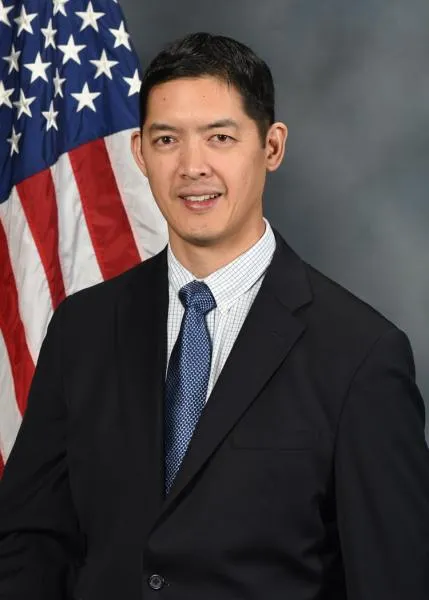The seeds that blossomed into U.S. Customs and Border Protection (CBP) Special Agent David Chin’s decade-long career in law enforcement were planted long before he ever joined the agency. “I really have always wanted to go into law enforcement,” said Chin, who has been with the CBP Office of Professional Responsibility (OPR) Investigative Operations Directorate (IOD) for just over a year.
But while Chin’s passion for law enforcement has deep roots, it is CBP’s emphasis on nurturing interests outside of work that he likes best. “I’m happy to be with CBP,” Chin said. “It’s very family friendly. I can do great work and be part of a great team while maintaining a healthy work-life balance.”

As an IOD criminal investigator, Chin primarily focuses on criminal, administrative, and critical-incident investigations affecting CBP personnel and programs. He frequently coordinates and liaises with Air and Marine Operations, Border Patrol, and the Office of Field Operations to identify vulnerabilities and risk, investigate root causes, and provide comprehensive reports that inform senior leadership to take corrective action. This requires Chin to adopt a whole-of-government approach that sees him engaging local, state, and federal counterparts to ensure an accurate account prior to adjudication.
Like so many other law enforcement officers before him, Chin’s journey to CBP began in the military. In college in San Diego, he was called to serve in the U.S. Marine Corps. It was a proud profession that offered a way for him to finance college. He possessed a keen interest in military history and had always wanted to be “a grunt.” He earned his degree and his commission through the Naval Reserve Officers’ Training Corps. In 2011, having served seven years in the Marine Corps as a commissioned officer, he found himself preparing to transition to a civilian lifestyle. He knew it was time to act on his next career. “I was not dead set on doing a 20-year active-duty career,” Chin said. “I actually met a law enforcement recruiter for the Diplomatic Security Service during a career fair while stationed in Camp Lejeune, North Carolina and that piqued my interest.”
“As life progresses, you get these little tidbits and people start planting seeds,” said Chin. During his time in the Marine Corps, yet another seed had been planted. “I would see these FBI agents driving on our base in Quantico, Virginia, and I’d say, ‘I want to be like that guy’ as I was in the middle of field exercises.’”
“After serving, the natural path for an infantry officer is to go into business, corporate management, on the private side, or law enforcement,” said Chin. He took a special interest in federal law enforcement and researched positions extensively. Chin found his match with the Diplomatic Security Service, the federal law enforcement and security arm of the Department of State. Like the Marine Corps, the State Department required him to travel extensively. “It allowed me to combine federal law enforcement with my passion for travel. It was a jack-of-all-trades kind of agency,” said Chin, who maintained his ties to the Marine Corps as reservist after he transitioned to the State Department. “I am a still Marine Corps reservist today.”
But with a growing family, Chin’s priorities also grew and changed. He needed a position stateside and found one with the Department of Veterans Affairs Office of Inspector General where his new mission was “investigating and auditing department programs to combat waste, fraud, and abuse.” However, two years later, he found himself missing the homeland security mission and applied for the role of special agent with CBP OPR.
Chin is pleased with his transition to CBP. In his daily duties, he promotes the integrity and security of the CBP workforce. “It’s a good line of work [overseeing CBP integrity and security]. It is a very family friendly organization,” Chin said. “It has been a good transition. I like the environment here in CBP. It’s very similar to what I experienced in the State Department minus the global travel aspect.”

